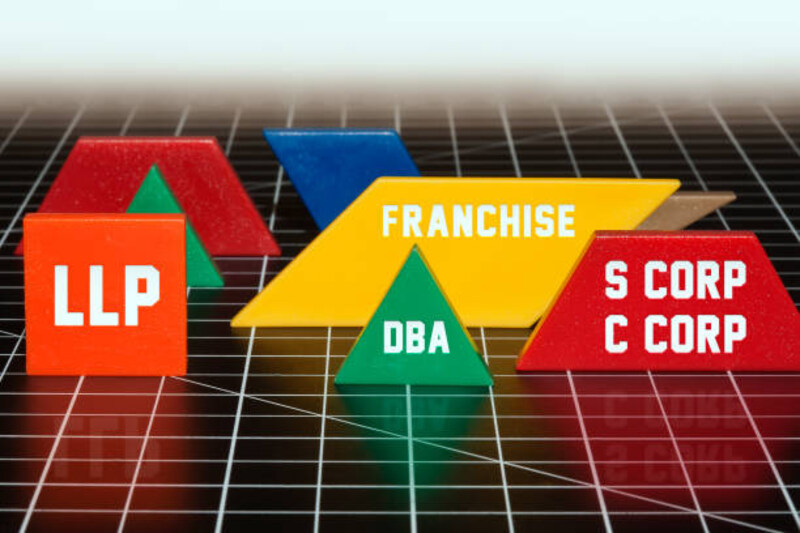Choosing the right entity for your business can be as critical as any operational decision. It not only has significant implications for your business's taxation, legal liability, and the sale of ownership but can also impact your personal finances and long-term objectives. In this comprehensive guide, we will explore the types of business entities from a beginner's lens, shedding light on each structure's defining aspects, advantages, and disadvantages.
Overview of business entity
Selecting a business entity is one of the first and most important decisions an entrepreneur must make. It lays the foundation for how a business operates, how it's taxed, and how the owners are protected from personal liability. The entity type you choose will influence your ability to raise capital, how you can distribute profits, and the extent of your control over the company. Therefore, understanding the various options available and their respective pros and cons is crucial for any aspiring business owner.
Sole Proprietorship

A sole proprietorship is the most straightforward and widely used business entity. It is often the default choice for new businesses owned by a single individual. In this structure, there is no legal separation between the owner and the business. As a result, the owner assumes personal responsibility for all debts and obligations of the business. This means that any liabilities incurred by the business can directly affect the owner's personal assets and financial well-being. Entrepreneurs considering a sole proprietorship should carefully consider the advantages of simplicity in relation to the potential risks and liabilities involved.
Characteristics
- Owner's Liability: As a sole proprietor, you are personally liable for all the debts and obligations of your business. You risk personal assets if your business is sued.
- Taxation: Business income is reported on the owner's personal tax return (Form 1040) and taxed at the individual tax rate. A Schedule C is used to report business income and expenses.
Advantages
- Simplicity in Startup and Management: The process of setting up a sole proprietorship is renowned for its simplicity and ease, with minimal paperwork and formalities. This makes it an appealing choice for aspiring entrepreneurs who want to start their own business without getting entangled in complex legal procedures.
- Unmatched Control: As the sole proprietor, you have the freedom to make all business decisions and exercise complete control over the operations. This grants you the flexibility to swiftly adapt to market changes, implement your own vision, and steer the business in the desired direction. With no partners or shareholders to consult with, you can act decisively, ensuring that your business remains agile and responsive to your customers' needs.
Disadvantages
- Unlimited Liability: The owner bears all the risk, and there is no separation between personal and business assets.
- Limited Capital: Raising capital can be challenging since the owner's personal assets are usually the only source of funding.
Partnership
A partnership is a business with more than one owner. Like a sole proprietorship, a partnership operates as an extension of the owners' personal assets.
Characteristics
- Partnership Agreement: A formal agreement outlining the terms of the partnership's operations, division of profits, and dissolution is highly recommended. A partnership can be formed with just a verbal agreement, but it's not advisable.
- Taxation: Partnerships don't pay income tax. Instead, the profits and losses "pass-through" to the partners, who report them on their personal tax returns.
Advantages
- Shared Responsibility: Partnerships can combine skills and resources, facilitating growth.
- Taxation: Like sole proprietorships, partnerships are not taxed as entities. The pass-through structure can be advantageous for tax planning.
Disadvantages
- Personal Liability: Partners are personally responsible for the business's debts, even if a partner incurred the debt without the other's knowledge or consent.
- Conflict Potential: Disagreements between partners can lead to disruptions and potentially legal action. Clear terms in a partnership agreement can help mitigate this risk.
Limited Liability Company (LLC)

An LLC is a hybrid business type that combines the limited liability benefits of a corporation with the pass-through taxation of a partnership or sole proprietorship.
Characteristics
- Limited Liability: Members of an LLC are generally not personally liable for the company's debts and obligations.
- Taxation: As with partnerships, an LLC's profits and losses pass through to its members, who report them on their individual tax returns.
Advantages
- Limited Liability: The primary advantage of an LLC is the protection of personal assets from business debts and lawsuits, known as the "corporate veil."
- Pass-Through Taxation: Members can report business income on personal tax returns, which simplifies tax matters and can lead to favorable tax treatment.
Disadvantages
- Cost and Complexity: Compared to sole proprietorships or general partnerships, the formation and compliance requirements for an LLC are more complex and can be more costly.
- Potentially Disjointed Governance: Without clear operating agreements, LLCs may struggle with decision-making processes and the resolution of disputes.
Corporation
A corporation is a separate legal entity, owned by shareholders who can elect a board of directors to make business decisions. One of the key features of a corporation is limited liability, which means that generally, shareholders are not personally liable for the corporation's debts or liabilities.
Characteristics
- Limited Liability: Shareholders are not personally responsible for the company's debts and liabilities.
- Taxation: Corporations can be taxed as separate entities, dubbed C-corporations, or choose to be taxed as pass-through entities, known as S-corporations.
Advantages
- Limited Liability and Investor Appeal: The separation between personal and corporate assets is a powerful incentive for attracting investment and mitigating shareholders' risk.
- Perpetual Existence: Corporations continue to exist even if ownership changes or one of the shareholders dies.
Disadvantages
- Double Taxation: C-Corporations are subject to "double taxation," where corporate profits are taxed, and then any distributions to shareholders (dividends) are taxed again at the individual level.
- Complexity and Compliance: The formalities and documentation required to establish and maintain a corporation are more significant than that of other business structures.
Other Business Entities
In addition to the four primary entities - sole proprietorships, partnerships, limited liability companies, and corporations - there are other less common structures that address specific needs and purposes. These include cooperatives, benefit corporations, and professional corporations. Each of these entities carries its own distinct legal and tax considerations that should be carefully considered when selecting the appropriate business structure. Understanding these nuances empowers entrepreneurs to make well-informed decisions and ensures compliance with relevant regulations.
Conclusion
Selecting the right business entity is a nuanced decision that should be made with careful consideration of your business objectives, financial situation, and risk tolerance. Consulting with legal and tax professionals can provide valuable guidance. As your business grows and evolves, re-evaluating your entity type may be necessary to ensure it continues to align with your goals and circumstances.







